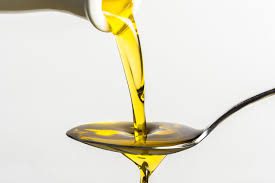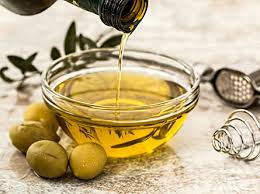Vegetable oil processing is the process of extracting oil from plant sources and refining it into a usable form. Vegetable oil processing is the industrial process of converting vegetable seeds or fruits into vegetable oil for human consumption or other purposes.
Vegetable oil is a type of oil that is derived from plant sources. It is commonly used in cooking and food preparation, as well as in various industrial applications.
Some common types of vegetable oil include soybean oil, canola oil, sunflower oil, corn oil, and palm oil. Each type of oil has its own unique properties and uses.
Vegetable oils are typically high in unsaturated fats, which are considered to be healthier than saturated fats found in animal products. However, some vegetable oils, such as palm oil, are high in saturated fats and have been linked to negative health effects when consumed in excess.
The production of vegetable oil has been criticized for its environmental impact, particularly in the case of palm oil, which has been linked to deforestation and habitat destruction. However, there are efforts underway to promote sustainable sourcing and production practices for vegetable oils.
In addition to their use in food production, vegetable oils are also used in the production of biodiesel, as a lubricant, and in the manufacturing of various products such as soaps and cosmetics.
Read Also: Effects of Snail Farming (Domesticated) on the Environment
Vegetable Oil Processing
The process involves several stages, including cleaning, crushing or pressing, solvent extraction, refining, and packaging. The first stage involves cleaning and removing foreign material such as stones, dust, and other debris from the seeds or fruits.
The next stage involves crushing or pressing the seeds or fruits to extract the oil. The oil is then subjected to a solvent extraction process to remove any remaining oil that could not be extracted by pressing.
The solvent is then removed from the oil through distillation, leaving behind crude vegetable oil. The crude oil is then subjected to refining to remove impurities such as free fatty acids, phospholipids, and other undesirable compounds that can affect the quality and shelf-life of the oil.
Finally, the refined oil is packaged and distributed to consumers. The type of vegetable oil produced depends on the type of seed or fruit used, and the processing method employed. Common types of vegetable oils include soybean oil, sunflower oil, canola oil, and palm oil, among others.
Vegetable Oil Processing Guide
Below is a detailed guide to vegetable oil processing:
1. Cleaning and Preparation: The first step in vegetable oil processing is to clean the seeds or fruits to remove any impurities such as stones, dust, and other debris.
This is done by passing the seeds or fruits through a series of screens, blowers, and magnetic separators to remove any foreign material. After cleaning, the seeds or fruits are then prepared for extraction by removing the shells, husks, or skins.
2. Crushing or Pressing: The next stage involves crushing or pressing the seeds or fruits to extract the oil. This is done using a mechanical press or an expeller.
The seeds or fruits are first heated to loosen the oil and then fed into the press. The pressure exerted by the press extracts the oil from the seeds or fruits. The oil extracted through this process is referred to as crude oil.
3. Solvent Extraction: After the crushing or pressing stage, a solvent extraction process is used to remove any remaining oil that could not be extracted through mechanical means. The solvent used is typically hexane.
The crushed seeds or fruits are then placed in a vessel and mixed with the solvent. The mixture is then heated to evaporate the solvent, leaving behind the oil. The oil is then subjected to distillation to remove the solvent.
4. Refining: The crude oil extracted from the solvent extraction process may contain impurities such as free fatty acids, phospholipids, and other undesirable compounds. Refining is carried out to remove these impurities and improve the quality and shelf-life of the oil. The refining process involves the following steps:
Degumming: In this step, the crude oil is treated with water to remove any gums and other impurities. The mixture is then heated and stirred to allow the impurities to settle at the bottom. The water and impurities are then removed, leaving behind degummed oil.
Neutralization: The degummed oil is then treated with an alkali solution to neutralize any free fatty acids present in the oil. The mixture is then heated and stirred to allow the impurities to settle at the bottom. The impurities are then removed, leaving behind neutralized oil.
Bleaching: The neutralized oil is then treated with a bleaching earth or activated carbon to remove any color and other impurities. The mixture is then heated and stirred to allow the impurities to settle at the bottom. The impurities are then removed, leaving behind bleached oil.
Deodorization: The bleached oil is then treated with steam to remove any odor and other volatile compounds. The oil is heated and subjected to a vacuum to remove any residual steam and other impurities.
5. Packaging and Distribution: After refining, the oil is then packaged in containers and distributed to consumers. It is important to note that the specific process used for vegetable oil processing may vary depending on the type of seed or fruit used, and the desired quality of the oil.
Additionally, some vegetable oils such as olive oil may skip the solvent extraction process and instead use a hydraulic press or centrifuge to extract the oil.
10 Health Benefit of Vegetable Oil

Below are 10 health benefits of vegetable oil:
1. Heart Health: Vegetable oils, such as olive oil and canola oil, contain high levels of monounsaturated and polyunsaturated fats that can help reduce the risk of heart disease by lowering LDL (bad) cholesterol levels.
2. Lower Inflammation: Vegetable oils contain compounds that can help reduce inflammation in the body, which can be beneficial for conditions such as arthritis and other inflammatory diseases.
3. Brain Function: Some vegetable oils, such as coconut oil, contain medium-chain triglycerides (MCTs), which have been shown to improve cognitive function and memory.
4. Improved Skin Health: Vegetable oils, such as avocado oil and almond oil, contain vitamins and antioxidants that can help improve skin health by reducing inflammation and protecting against UV damage.
5. Cancer Prevention: Some vegetable oils, such as sunflower oil and soybean oil, contain high levels of antioxidants that may help prevent certain types of cancer.
6. Better Vision: Vegetable oils, such as corn oil and soybean oil, contain vitamin E, which is important for eye health and can help prevent age-related macular degeneration.
7. Bone Health: Vegetable oils, such as sesame oil and sunflower oil, contain vitamin K, which is essential for bone health and can help prevent osteoporosis.
8. Lower Blood Sugar: Some vegetable oils, such as olive oil and coconut oil, may help improve insulin sensitivity and lower blood sugar levels, which can be beneficial for people with diabetes.
9. Improved Digestion: Vegetable oils, such as flaxseed oil and hempseed oil, contain high levels of fiber that can help improve digestion and prevent constipation.
10. Reduced Risk of Depression: Some vegetable oils, such as olive oil and canola oil, contain omega-3 fatty acids, which have been shown to reduce the risk of depression and improve mood.
Read Also: Equipments and Tools Needed in Snail Farming
Uses of Vegetable Oil

Vegetable oil has a variety of uses in the kitchen, as well as other areas. Here are some common uses of vegetable oil:
Cooking: Vegetable oil is commonly used for cooking, such as frying, baking, and sautéing.
Salad Dressings: Vegetable oils such as olive oil and canola oil are commonly used to make salad dressings and vinaigrettes.
Marinades: Vegetable oil can be used as a base for marinades to add flavor and tenderize meats.
Baking: Vegetable oil is commonly used in baking recipes as a substitute for butter or margarine.
Popcorn: Vegetable oil is often used for popping popcorn kernels, as it can withstand high heat.
Lubrication: Vegetable oil can be used as a natural lubricant for machinery, tools, and other equipment.
Cosmetics: Vegetable oil is used in a variety of cosmetic products such as soaps, lotions, and creams.
Biofuel: Vegetable oil can be converted into biodiesel, a renewable fuel source that can be used in diesel engines.
Soap Making: Vegetable oil is a common ingredient in soap making, as it can produce a gentle and moisturizing soap.
Paints: Vegetable oil can be used as a binder in paint formulations, as it can help improve the flow and consistency of the paint.
Economic Importance of Vegetable Oil
Vegetable oil is an important commodity in the global economy, with numerous economic benefits. Here are some of the economic importance of vegetable oil:
Food Industry: Vegetable oil is a key ingredient in the food industry, with applications in cooking, baking, and food processing.
The demand for vegetable oil in the food industry is high, making it an important source of revenue for farmers, processors, and distributors.
Agriculture: Vegetable oil production is a major source of income for farmers, especially in developing countries where smallholder farmers produce oilseeds such as soybean, sunflower, and palm oil.
Employment: Vegetable oil production provides employment opportunities for a large number of people, including farmers, laborers, factory workers, and logistics personnel. This contributes to the economic development of both rural and urban areas.
Export Revenue: Vegetable oil is a major export commodity for many countries, generating significant revenue from international trade. Countries such as Indonesia and Malaysia are major exporters of palm oil, while Argentina and Brazil are major exporters of soybean oil.
Energy Industry: Vegetable oil can be used to produce biofuels, which are renewable and eco-friendly alternatives to traditional fossil fuels. This creates new markets and revenue streams for vegetable oil producers and processors.
Pharmaceuticals: Vegetable oil is used in the pharmaceutical industry as a carrier for drugs and other active ingredients. This provides a valuable market for vegetable oil producers, especially those producing high-quality oils such as olive oil.
Cosmetics: Vegetable oil is used in the cosmetics industry to produce a range of products such as soaps, lotions, and creams. This creates additional markets for vegetable oil, especially for high-quality oils such as jojoba oil and almond oil.
Overall, the economic importance of vegetable oil is significant, and it plays a crucial role in supporting livelihoods, generating revenue, and promoting economic growth in many countries around the world.
Red Also: Ways To Generate Income From Electronic Waste (E-Waste)
Frequently Asked Questions
We will update this section soon.


Wow, it’s interesting to know that vegetable oil is also used in the cosmetics industry. I’d like to find a good vegetable oil distributor soon because I plan to have my own food truck business in the future. Being able to buy cooking oil in bulk would be great for that.